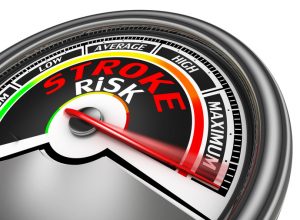
A transient ischemic attack (TIA) is a type of stroke that lasts for a short period of time and does not result in long-lasting damage. Often referred to as mini-stroke, a TIA is temporary, only lasting a few minutes.
A mini-stroke should always be taken seriously, as it could be a warning sign for the impending stroke later on. A TIA often indicates that another stroke of a greater severity can occur within the next year. On the other hand, experiencing a TIA can prompt you to take your health under control, making the necessary lifestyle adjustments in order to improve your cardiovascular outcomes and prevent future strokes.
Causes and symptoms of a transient ischemic attack (TIA) in elderly
A transient ischemic attack, or mini-stroke, takes place when a blood clot temporarily blocks the flow of blood to the brain. There are numerous reasons why a blood clot may form, such as plaque buildup along the arteries, hypertension, or diabetes. Additionally, a blood clot can form in one part of the body and then move up towards to the brain.
Symptoms of a TIA include:
- Sudden numbness or tingling, weakness, or loss of movement in your face, arms, or legs – particularly on one side of your body
- Sudden vision loss
- Difficulty speaking
- Sudden confusion
- Sudden problems with walking or standing
The moment you experience any of these symptoms or notice someone experiencing them, call 911 right away.
Treatment options and home remedies for a transient ischemic attack
Lifestyle changes involve following a heart-healthy diet low in salt and high in fiber, eating plenty of fruits and vegetables, exercising regularly, quitting smoking, and limiting alcohol consumption.
Your doctor may also recommend medications for high blood pressure or cholesterol as both conditions can increase your risk of a future stroke.
If you haven’t exercised in a while, there are some important tips to consider. For starters, always remember to warm up and cool down, or else you are putting yourself at a higher risk for injury.
When choosing a physical activity, it’s important to consider your capabilities as well as preferences. You may want to start off slowly with some walking, swimming, household chores, yoga, and tai chi. Over time, you can build yourself up to engage in more vigorous activities like dancing or even aerobics. It’s important to find a type of exercise that you enjoy to give yourself a greater incentive to commit to your health goals. You may also want to solicit help from your friends as a motivation to work out together.
Exercise is a great way to help reduce your risk of stroke. Not only does it keep your heart healthy, but it also keeps in check other risk factors that can contribute to stroke, such as weight, blood pressure, and cholesterol, to name a few.
Working closely with your doctor will help you assess your risk of a future stroke and develop an effective prevention strategy.
Sources:
http://www.mayoclinic.org/diseases-conditions/transient-ischemic-attack/basics/definition/con-20021291
http://www.webmd.com/stroke/tc/transient-ischemic-attack-tia-cause
http://www.webmd.com/stroke/tc/transient-ischemic-attack-tia-symptoms
http://www.nhs.uk/Conditions/Transient-ischaemic-attack/Pages/Treatment.aspx
https://www.stroke.org.uk/sites/default/files/exercise_and_stroke.pdf